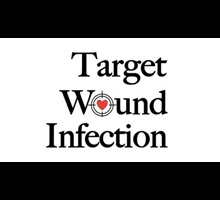Department of Cardiovascular Sciences
Target Wound Infection Study
Overview
Every patient having heart surgery is at risk of developing a wound infection. For some patients, the risk is low, whilst for others it might be high. In this study, we will develop a way of working out whether patients have a high or a low risk of developing a wound infection. Once we do this, we can then target interventions to each patient to prevent them from developing an infection. This means that each patient will get the individualised treatment that is best for them.
Background
Wound infections can have a huge impact on the physical and mental health of patients and their relatives or carers. Treating wound infections costs the NHS millions of pounds each year.
The problem
Evidence obtained by the research team, shows that the rates of wound infections vary from hospital to hospital. Treatments and practices between hospitals to prevent wound infections also vary, for reasons that are not clear. This may be due to the lack of research guiding healthcare professionals as to what are the best treatments to reduce an individual’s chance of getting a wound infection. We already know that some patients have a higher risk of developing an infection, and targeting these patients is extremely important. Targeting patients at high risk of developing a wound infection will reduce the unnecessary use of antibiotics, and the development of bacterial resistance to antibiotics (anti-microbial resistance). However, existing methods to identify high-risk patients, what we call ‘risk assessment’, are poor.
Our solution
To address these challenges, we have outlined a programme of research that will develop a new way of working out each patient’s risk of developing an infection. We will then test whether using this method to prevent infections based on individual risk assessment, will reduce infection rates, antimicrobial resistance, and save the NHS money, in a clinical trial.
What are we going to do
Before we conduct a clinical trial, we need more information to help us design our study and the way we implement any new practices. There are three work packages within our study.
Work package 1
We will review all the previous studies that identified patient factors that increase wound infections. We will use these factors in the development of a new risk assessment tool for heart surgery patients.
Work package 2
We will study why hospitals use different treatments to reduce wound infection and make recommendations as to how these might be improved and standardised.
Work package 3
Wound infection rates after surgery are monitored by Public Health England, an organisation sponsored by the Department of Health and Social Care to protect and improve the nation’s health. However not all hospitals use this service. We will work with hospitals to develop ways to improve monitoring and increase the number of hospitals participating in our research. Knowing wound infection rates helps hospitals recognise when they are doing well in preventing and treating wound infection or when they need to improve to reduce infections. This helps hospitals provide the best possible care for all patients.
Find out more about the work package 3 surveillance survey.
How can I get involved
Whether you are a patient, carer, member of the public or a healthcare professional, we need your help.
For further information please contact Professor Judith Tanner at judith.tanner@nottingham.ac.uk.
